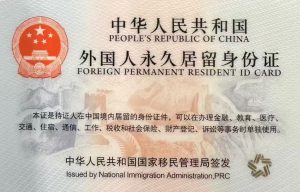Applying for permanent residency in China is a complex and detailed process that involves extensive document preparation and strict review of eligibility criteria. Below are some of the most common mistakes applicants make during the process, along with advice on how to avoid them. Additionally, we offer some crucial details that applicants should keep in mind.

01 Understanding the Application Criteria
Many applicants misunderstand the eligibility requirements. For example, simply working in China for over four years may not automatically meet the criteria for a work-based permanent residency application. Applicants need to have continuous employment and meet other conditions, such as annual tax payments and a sufficient salary each year, rather than relying on cumulative totals over four years.
02 Preparing the Necessary Documentation
When preparing application materials, applicants may overlook or inadequately prepare necessary proof, such as investment certificates, employment verification, marriage certificates, and birth certificates. Notably, documents issued by foreign institutions must be authenticated by the Chinese embassy or consulate in the relevant country. For instance, health certificates and foreign police clearance certificates require authentication.

03 Power of Attorney Authentication
If a power of attorney is issued overseas, it must be authenticated by the Chinese embassy or consulate in that country; otherwise, it may not be accepted. This step ensures the authenticity and validity of the document.
04 Incorrect Application Form Completion
The application form must be completed using a black pen or ballpoint pen, with clear and legible handwriting. Mistakes or non-standard entries can cause delays or rejection. Be sure to carefully check the form before submission to avoid omissions or errors.
05 Document Authentication and Translation
Documents issued by foreign authorities must undergo both authentication by the Chinese embassy or consulate and translation into Chinese. Omitting these steps can result in the materials being rejected. Authentication and translation are critical to ensure the legal effectiveness of the documents internationally.
06 Correct Calculation of Residence Time
The application criteria specify clear requirements for residence in China, such as continuous residence for five years with at least nine months of stay each year. Incorrect calculation of residence time can lead to non-compliance with eligibility. Applicants must accurately document and prove their actual residence in China.

07 Credential Authentication Issues
For applicants holding foreign academic qualifications, it is necessary to provide an authentication of the foreign degree from the Chinese Service Center for Scholarly Exchange (CSCSE). Failure to provide or failure to meet authentication requirements can lead to application rejection. Degree authentication serves as an important basis for evaluating the applicant’s professional qualifications.
08 Identity Statement for Name Changes
In cases where applicants have changed their names after acquiring foreign nationality, an identity statement must be provided and authenticated. Without this statement, the application may face difficulties or delays. Notarizing the name change is essential to prove identity consistency.
09 Records of Illegal Employment or Overstay
Applicants with records of illegal employment, overstays, or administrative penalties may face challenges in obtaining permanent residency. Such records are seen as potential threats to national security and interests, which may significantly lower the chances of approval.
10 Payment of Application Fees
Application fees and document fees must be paid on time. Failure to make the correct payments or errors in payment can disrupt the application process. The application fee is 1500 yuan, while the document fee is 300 yuan.

11 Misunderstanding of Processing Timelines
The decision on whether to approve or reject an application must be made within six months from the date of acceptance. Misunderstanding the processing timeline may lead to inaccurate assumptions about the application’s progress. Applicants should remain patient and follow up on the application status in a timely manner.
12 Employment Changes Affecting the Application
If an applicant changes employers or leaves their job during the application process, it may negatively impact their chances of obtaining permanent residency. Employment stability is an important factor in assessing eligibility for permanent residency.
13 Records of Illegal Stay
Even minor violations, such as overstaying a visa, may result in the rejection of the application. Compliance with China’s immigration laws is a fundamental requirement for applying for permanent residency.
To avoid these mistakes, applicants should carefully verify the validity and certification of all documents, complete the application forms accurately, ensure that all required proof is comprehensive and meets the standards, and promptly pay the required fees. Additionally, applicants should maintain open communication with the authorities to stay updated on the application’s progress and any additional documents needed. Ensuring the accuracy and completeness of all information during the application process will significantly increase the likelihood of success.





